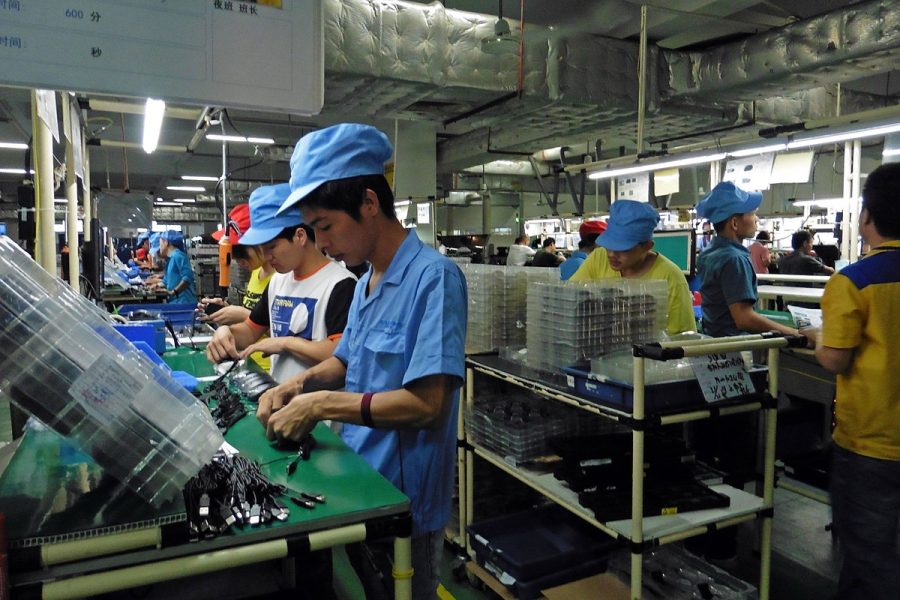Confronting the Toxic 996 Work Culture
G. Tech Technology Factory in Zhuhai, China
The 996 work culture is harmful to the much-needed work-life balance of employees.
In December of 2021, an employee at the Chinese e-commerce company Pinduoduo collapsed while coming home from work and died. Two weeks later, an ex-employee at Pinduoduo leapt to his death after being fired for criticizing the company’s work culture. Unfortunately, such a toxic environment is the default condition in China, referred to as “996”, a shorthand for “9 a.m. to 9 p.m., 6 days per week”. Although the 996 work environment has turned China into an economic powerhouse, it has not come without costs.
Companies operating under the harsh expectations of 996 traps its employees in a downward spiral. It is only a matter of time until workers burn out and are chastised. According to Forbes, those who underperform are subject to toxic humiliation as punishment, such as being forced to dance around the office wearing pathetic clothing or being given a so-called “freeloader award”. These forms of workplace bullying may lead to the employees’ stress, depression, and sometimes even death.
Unfortunately, the 996 system has become so entrenched in Chinese ideology that the elite have ignored the plight which the middle-class has fallen into. Jack Ma, the founder of Alibaba, has said that “it is a huge blessing to be able to ‘996’”. Richard Liu, who manages the e-commerce company JD, echoed this attitude when he labeled “employees who seek work-life balance as ‘slackers’ who were not welcome at his company”. From the perspective of the CEOs, if their employees take 72 hours a week churning out code, design ideas, among other things, the company will become more productive and profit will skyrocket.
However, according to economist Rutger Bregman, “productivity and long work hours do not go hand in hand”. Henry Ford, who spearheaded the technological innovation of mass production in 1913, found that his employees were most productive “when they worked a forty-hour week”. By extending the workweek, employees enjoy less leisure time, demotivating them and decreasing their efficiency. Hence, China’s 72-hour workweek is far from optimal efficiency.
The 996 work culture hollows humanity, reinforcing the false belief that overwork is necessary to become successful. The fast growth of China’s tech sector under its hustle culture has threatened some American companies, tempting them to apply a 996-esque work system and signaling the possible expansion of a dangerous practice. In addition, our generation is attached to technology, and the more attached we are, the more aggressive the companies will be in competing. Given this, we must raise awareness of the consequences of workaholism and demand a healthy work-life balance. After all, the kids and teens of today will become the employees and employers of tomorrow.

